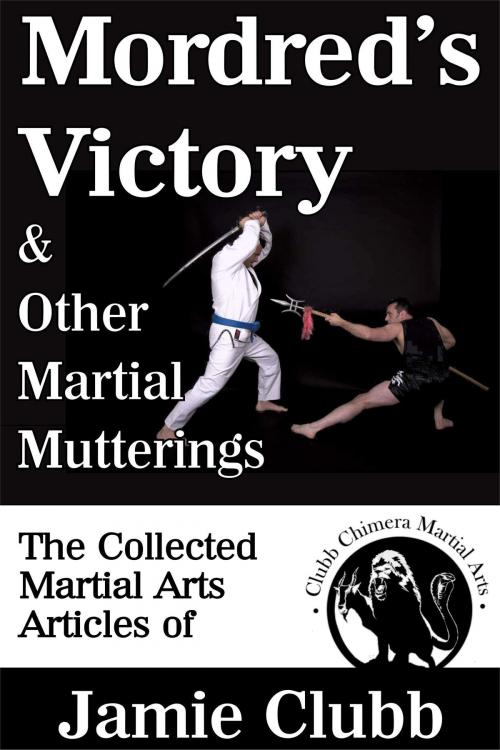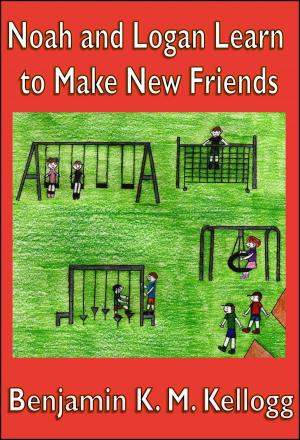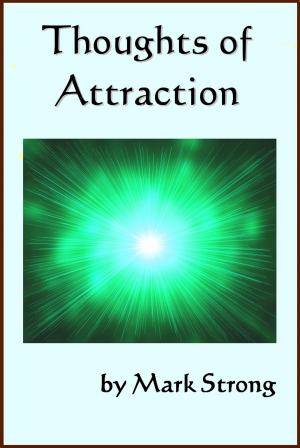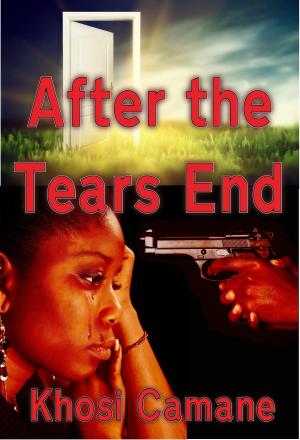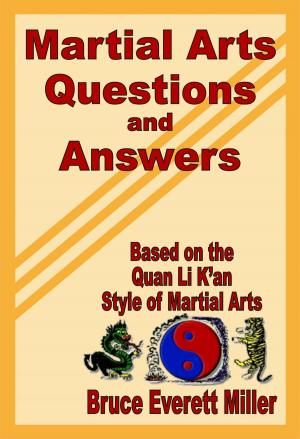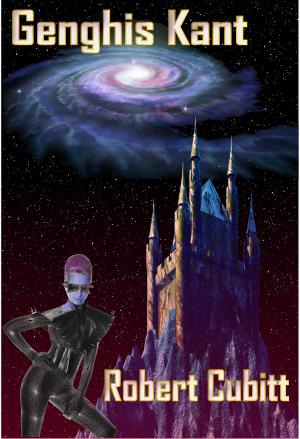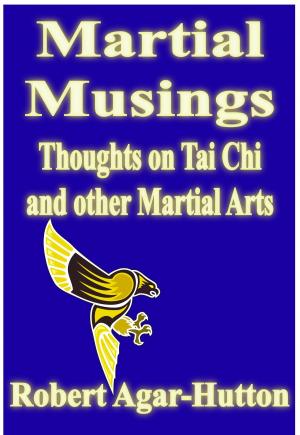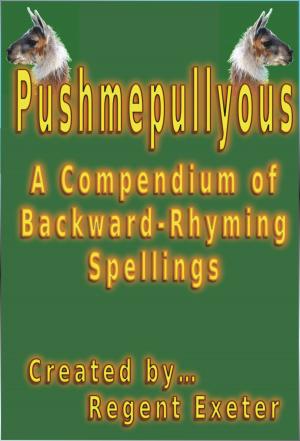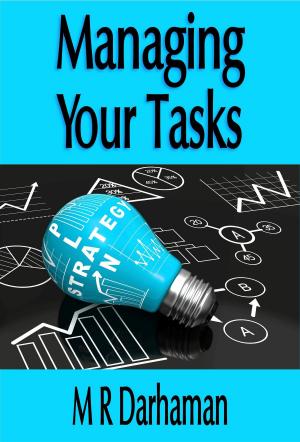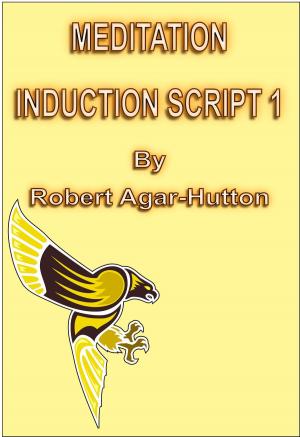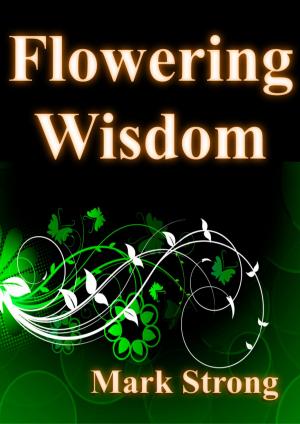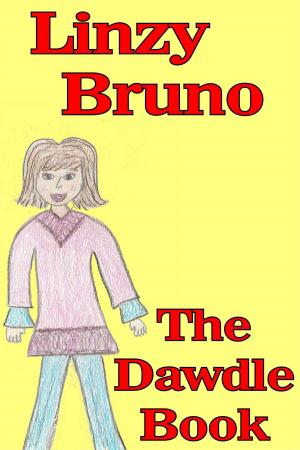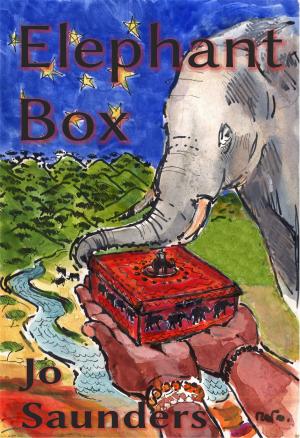| Author: | Jamie Clubb | ISBN: | 9781909133570 |
| Publisher: | Ex-L-Ence Publishing | Publication: | September 25, 2014 |
| Imprint: | Smashwords Edition | Language: | English |
| Author: | Jamie Clubb |
| ISBN: | 9781909133570 |
| Publisher: | Ex-L-Ence Publishing |
| Publication: | September 25, 2014 |
| Imprint: | Smashwords Edition |
| Language: | English |
Here for the first time are some of Jamie Clubb’s best martial arts articles. Throughout this book, you can see the various thinking processes Jamie underwent to create the best-selling and critically acclaimed Cross Training in the Martial Arts DVDs and his unique approach to self-protection and cross-training: Clubb Chimera.
Best-selling and award-winning author Robert Twigger, author of “Angry White Pyjamas”, “Big Snake”, “The Extinction Club”, “Red Nile” and many other books says: “Jamie Clubb is a polymathic writer with enthusiasm, insight and great talent - read his book!”
Born into a travelling circus family, Jamie Clubb offered a fresh and unique insight to the world of martial arts. In his preface to this book, Geoff Thompson says, “The writer is erudite and extremely well read and practised, the writing is literary and compelling and the prose is articulate and challenging for all the right reasons”.
In his afterword to this work, T.J. Kennedy, founder of Canada’s Hybrid Fighting Method, states: “These articles ask important questions about tradition, ethics, and several other martial concepts. He challenges the reader with simple reason and logic to break through misconceptions and limiting beliefs in the area of self-protection. Jamie shows himself to be very knowledgeable in a wide array fields. These fields include martial arts history, zoology, evolutionary psychology, and sport specific training - to name a few.”
These totally revised and newly annotated essays touch upon a wide range of subjects. Beginning with observations on the history and subculture of fighting systems, both traditional and modern. In his first published reflective work, Martial Academia, Jamie voiced the view of the objective pragmatist swimming against a tide of philosophy and scholarship. In the book’s titular essay, he examined the potentially devastating consequences a natural champion faces against an obsessive usurper. Harking back to his 300 year old circus lineage, Jamie brought unique parallels from animal training to the fighter’s war cry in Kiai: The Fading Cry of the Martial Artist. The next two sections address the underlying subtext of practical self-protection, before meeting the issue of realistic training for children head-on. Finally, the book argues the case for time-managed individualistic training against the collective top-down methods that prevails in most martial arts schools. In addition to providing a model for effective martial arts cross-training he also muses on training alone and coping with injuries.
British Combat Association senior coach and author, Iain Abernethy describes Jamie as “One of the most insightful martial artists it’s ever been my pleasure to meet. His direct and practical approach cur right to the heart of functional self-protection”. World Combat Arts founder and star of Danny Dyer’s Deadliest Men, Mo Teague, calls Jamie “The intellectual dimension in reality training, putting the brains behind the brawn”.
Ron Goin, founder of P.U.M.A. (Practical Urban Martial Arts) USA, summarizes Jamie as “Truly a critical thinker [who] accepts nothing at face value. He believes in research, the scientific approach, and unbiased analysis. Jamie has trained with some of the world’s leading personal combat specialists, and he has received remarkable accolades from men who are not easily impressed. Not content with merely teaching a set of physical techniques, Jamie seems to have a unique mission… he wants his students to experience the joy of discovery on their own. He presents them with skill sets not only to learn to fight and defend themselves but also how to research their own approach and learn to think. Jamie is truly a modern-day Renaissance man”.
These essays are the result of years of intensive training with some of the UK’s most renowned and revolutionary martial arts instructors, shaped by the critical eye of a vagabond writer.
Here for the first time are some of Jamie Clubb’s best martial arts articles. Throughout this book, you can see the various thinking processes Jamie underwent to create the best-selling and critically acclaimed Cross Training in the Martial Arts DVDs and his unique approach to self-protection and cross-training: Clubb Chimera.
Best-selling and award-winning author Robert Twigger, author of “Angry White Pyjamas”, “Big Snake”, “The Extinction Club”, “Red Nile” and many other books says: “Jamie Clubb is a polymathic writer with enthusiasm, insight and great talent - read his book!”
Born into a travelling circus family, Jamie Clubb offered a fresh and unique insight to the world of martial arts. In his preface to this book, Geoff Thompson says, “The writer is erudite and extremely well read and practised, the writing is literary and compelling and the prose is articulate and challenging for all the right reasons”.
In his afterword to this work, T.J. Kennedy, founder of Canada’s Hybrid Fighting Method, states: “These articles ask important questions about tradition, ethics, and several other martial concepts. He challenges the reader with simple reason and logic to break through misconceptions and limiting beliefs in the area of self-protection. Jamie shows himself to be very knowledgeable in a wide array fields. These fields include martial arts history, zoology, evolutionary psychology, and sport specific training - to name a few.”
These totally revised and newly annotated essays touch upon a wide range of subjects. Beginning with observations on the history and subculture of fighting systems, both traditional and modern. In his first published reflective work, Martial Academia, Jamie voiced the view of the objective pragmatist swimming against a tide of philosophy and scholarship. In the book’s titular essay, he examined the potentially devastating consequences a natural champion faces against an obsessive usurper. Harking back to his 300 year old circus lineage, Jamie brought unique parallels from animal training to the fighter’s war cry in Kiai: The Fading Cry of the Martial Artist. The next two sections address the underlying subtext of practical self-protection, before meeting the issue of realistic training for children head-on. Finally, the book argues the case for time-managed individualistic training against the collective top-down methods that prevails in most martial arts schools. In addition to providing a model for effective martial arts cross-training he also muses on training alone and coping with injuries.
British Combat Association senior coach and author, Iain Abernethy describes Jamie as “One of the most insightful martial artists it’s ever been my pleasure to meet. His direct and practical approach cur right to the heart of functional self-protection”. World Combat Arts founder and star of Danny Dyer’s Deadliest Men, Mo Teague, calls Jamie “The intellectual dimension in reality training, putting the brains behind the brawn”.
Ron Goin, founder of P.U.M.A. (Practical Urban Martial Arts) USA, summarizes Jamie as “Truly a critical thinker [who] accepts nothing at face value. He believes in research, the scientific approach, and unbiased analysis. Jamie has trained with some of the world’s leading personal combat specialists, and he has received remarkable accolades from men who are not easily impressed. Not content with merely teaching a set of physical techniques, Jamie seems to have a unique mission… he wants his students to experience the joy of discovery on their own. He presents them with skill sets not only to learn to fight and defend themselves but also how to research their own approach and learn to think. Jamie is truly a modern-day Renaissance man”.
These essays are the result of years of intensive training with some of the UK’s most renowned and revolutionary martial arts instructors, shaped by the critical eye of a vagabond writer.
